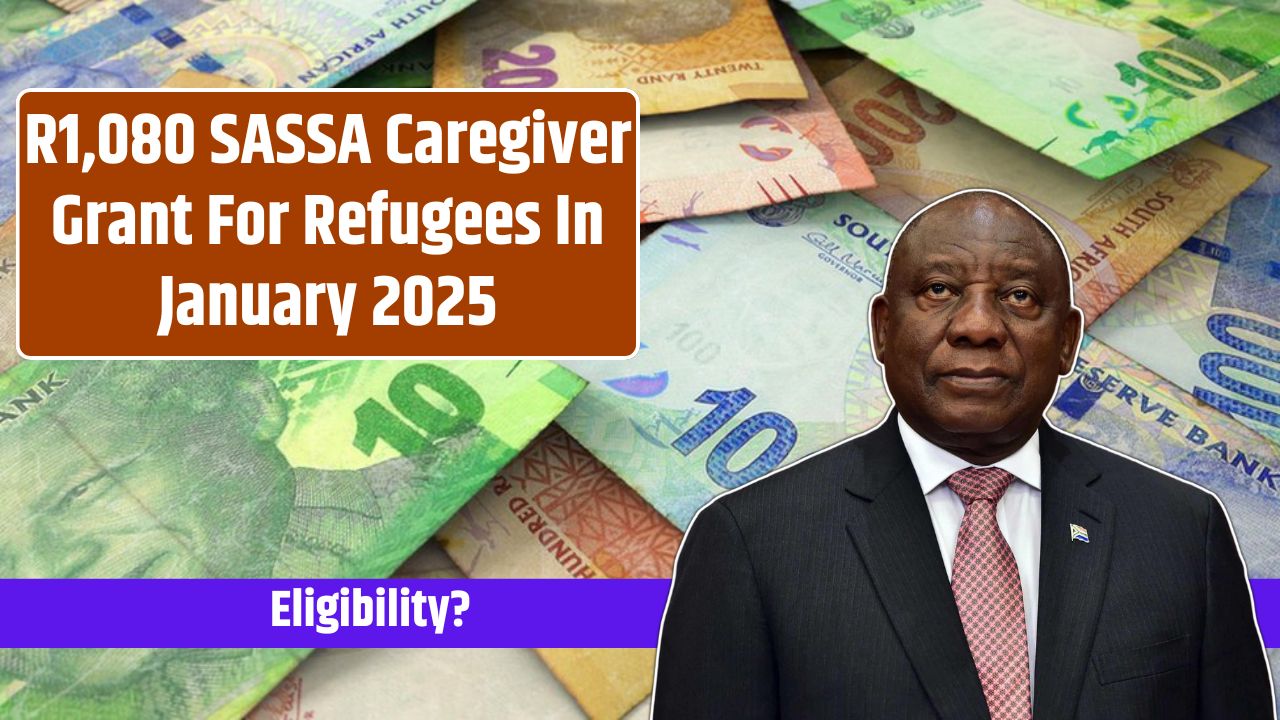The SASSA Caregiver Grant provides essential financial support to caregivers, including refugees, in South Africa who care for children under 18.
With a monthly payment of R1,080 in 2025, the grant helps alleviate the financial burden of raising children, ensuring their access to basic needs like food, clothing, shelter, and education.
For refugees, understanding the eligibility criteria and application process is crucial for accessing this vital assistance.
What Is the SASSA Caregiver Grant?
The SASSA Caregiver Grant is part of South Africa’s social support system, aimed at assisting caregivers in vulnerable circumstances.
For refugees, it offers an essential lifeline, addressing challenges such as financial hardship and limited employment opportunities.
Eligibility Criteria
Refugee caregivers must meet specific requirements to qualify for the grant:
| Requirement | Details |
|---|---|
| Refugee Status | Must hold recognized refugee/asylum-seeker status from the Department of Home Affairs. |
| Primary Caregiver | Must be the child’s primary caregiver, providing daily care and responsibility. |
| Income Means Test | Household income must not exceed SASSA’s set threshold. |
| No Other Grants | Caregivers cannot receive another state grant for the same child. |
Required Documents
- Refugee ID card from the Department of Home Affairs.
- Child’s birth certificate or adoption papers.
- Proof of residence (e.g., utility bills or lease agreements).
- Bank details for direct deposit.
How to Apply
Follow these steps to apply for the SASSA Caregiver Grant:
Step 1: Prepare Documents
Ensure all necessary documents are complete, including:
- Refugee ID and child’s proof of identity.
- Proof of residence.
Step 2: Submit the Application
- Apply in person at a SASSA office or online via the SASSA website.
Step 3: Attend an Interview (If Required)
SASSA may request an interview to verify details, particularly for refugee caregivers.
Step 4: Approval Process
- SASSA evaluates your application based on the means test and other criteria.
- You will receive notification of the outcome.
Step 5: Receive Payments
Once approved, you’ll receive R1,080 monthly via:
- Bank deposit.
- Other specified methods, such as cash transfers.
Common Challenges Refugees Face
| Challenge | Solution |
|---|---|
| Documentation Issues | Verify all documents are complete before submission. |
| Language Barriers | Seek help from community organizations or legal aid services. |
| Processing Delays | Regularly follow up with SASSA to track your application status. |
| Income Thresholds | Review the means test criteria carefully to determine eligibility. |
Additional Support Programs for Refugees
Refugees may also qualify for other SASSA grants:
| Program | Details |
|---|---|
| Social Relief of Distress (SRD) | Temporary financial aid during crises such as illness or displacement. |
| Disability Grant | For individuals with disabilities meeting eligibility criteria. |
| Child Support Grant | Available for low-income caregivers who are South African citizens or permanent residents. |
Real-Life Impact: Success Stories
Consider a refugee family from the Democratic Republic of Congo. The mother, as the primary caregiver for her children, applied for the Caregiver Grant.
After approval, she began receiving R1,080 monthly, which enabled her to provide:
- Nutritious Meals: Improved children’s health.
- School Supplies: Supported their education.
- Medical Care: Ensured access to necessary healthcare.
This financial assistance transformed the family’s life, creating a safer and more stable environment for the children.
Key Resources
For more information or assistance:
- Visit the SASSA website.
- Contact the toll-free helpline: 0800 601 011.
- Seek support from local refugee organizations.
















